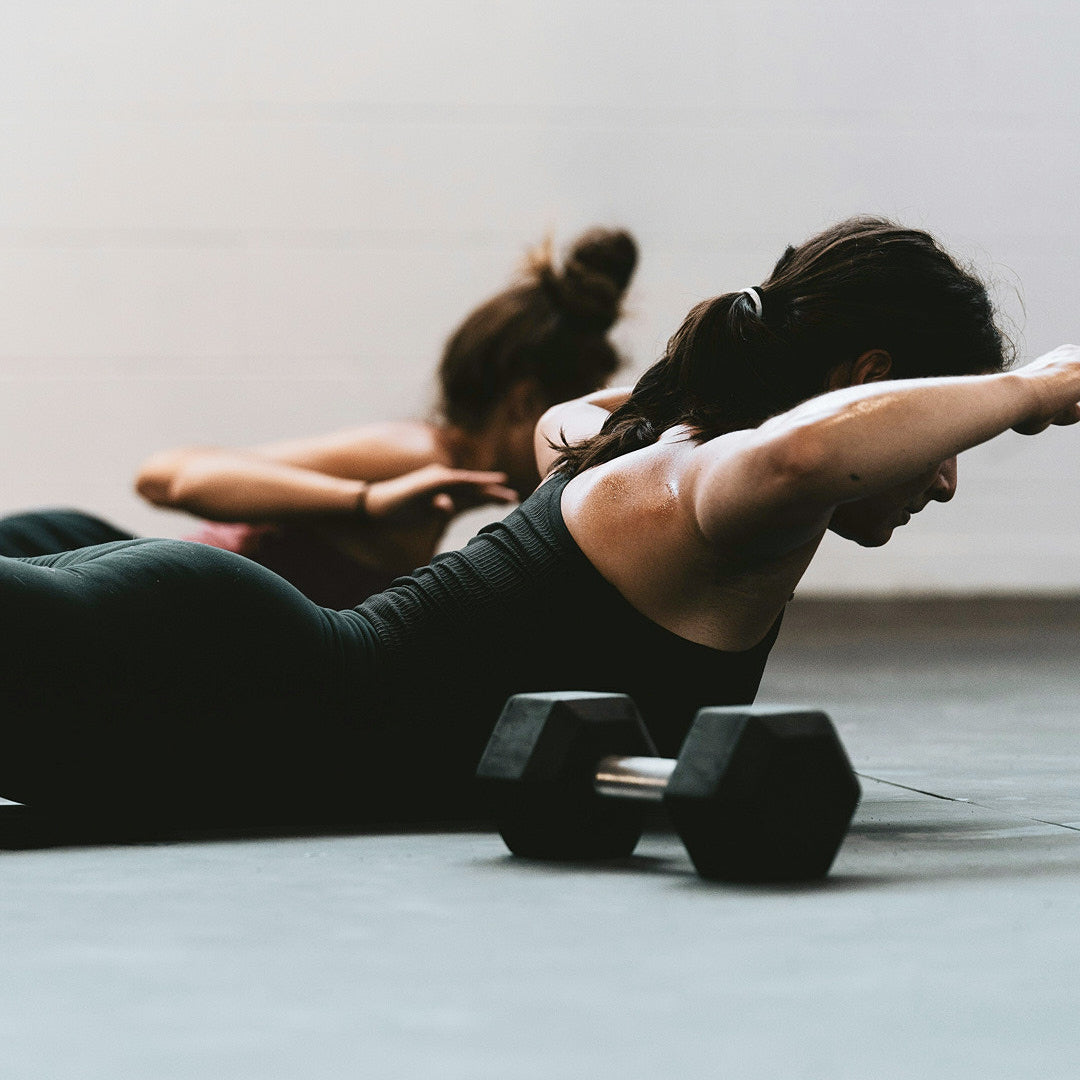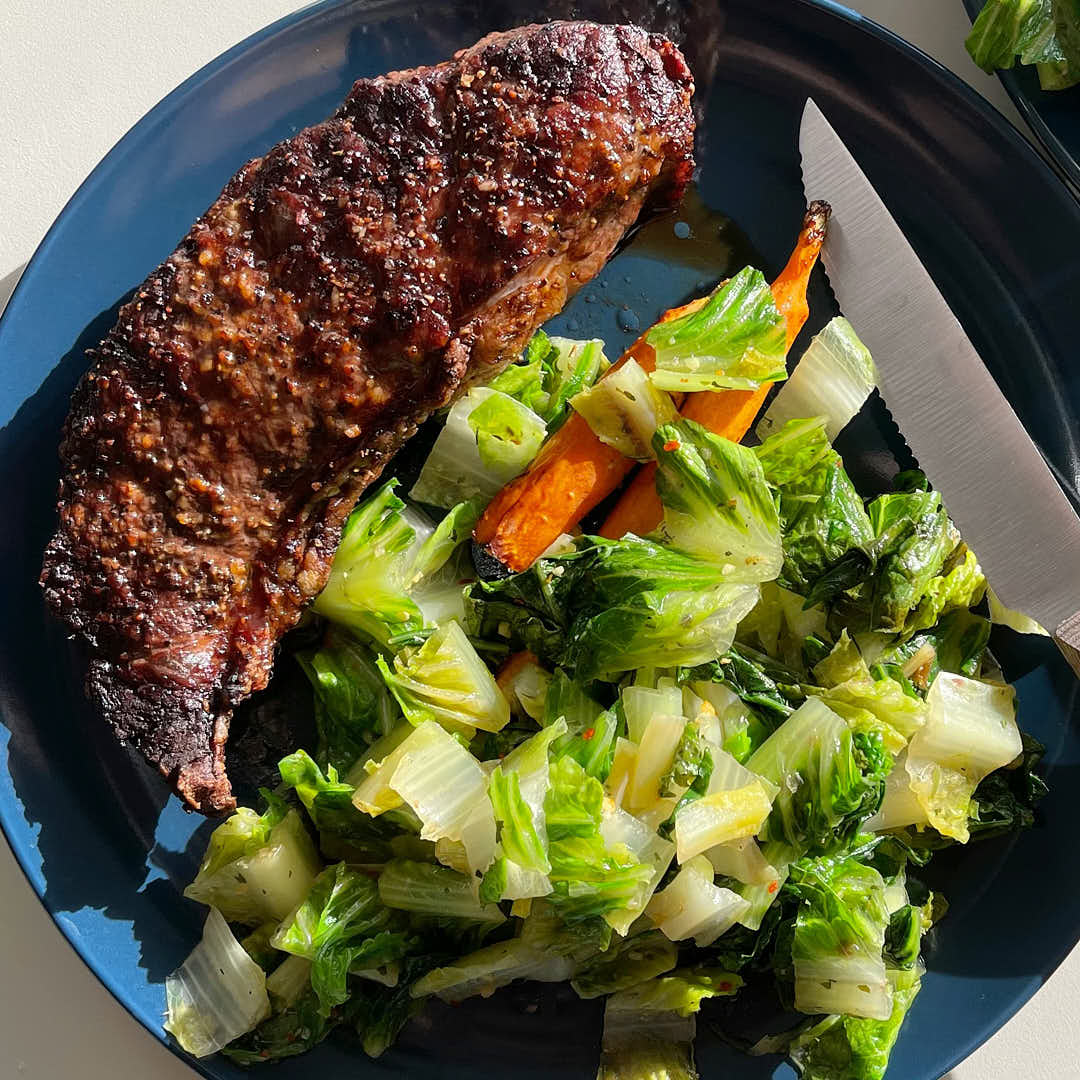5 minute read
5 Keys to Building Muscle
At the beginning of my gym journey, I was confused by what I saw online. All I wanted was to get "toned", but everyone seemed to have a different take on how best to achieve that. After a lot of trial and error, I finally boiled all the noise down to these five key action items: strength train, properly rest between sets, progressive overload, eat high protein, and get quality sleep. Not only did I finally build the muscle for the physique I wanted by following these steps, but I also built a healthier body with denser bones for longevity as well as a strengthened immune system. It's not complicated, let's get into it!
1. strength train
While any movement you enjoy and do regularly is better than no exercise at all, strength training gets you the most bang for your buck! It’s the most effective and sustainable way to build muscle in the least amount of time making your body stronger, physique leaner, and metabolism faster in the process.
What is strength training?
- Lifting weights with the intent of getting stronger
- Focusing on the big lifts: squats, deadlifts, bench (bonus: overhead press, rows, hip thrusts) and free weights in general
How often should I train? Just 2-3 full body workouts a week consistently is an effective and sustainable routine for most people! And yes, this frequency is enough to see results as long as you stick to it (source).
2. rest between sets
Resting between sets is a key difference between strength training and your average circuit or group fitness classes. Going non-stop from exercise to exercise turns your workout into cardio with weights, which isn’t as effective for building muscle.
Proper rest gives us the energy to lift heavier, which builds strength, and the stronger we get, the more muscle we're building!
How long should I rest for? While it depends on your programming and rep range, but if you're coming from circuit training or have never timed your rest periods before, try 60-90 seconds. If you're lifting heavier weight for low reps, rest for 3-5 (or even 7!) minutes to fully recover and maintain lifting performance. You can rest too little, but you can't rest too long!
3. progressive overload
In order to keep building muscle, you need to challenge your body over time. Progressive overload doesn’t mean going all out or training to failure every workout - it just means gradually increasing the demand. This won't happen every gym session since progress isn't instant, but requires intention and consistency. You won't be able to squat a lot of weight immediately, you have to build up strength and work up to it over months or years.
How do I progressively overload?
- lifting heavier weights (you can do this slowly with fractional plates!)
- improve your form for better muscle connection and greater range of motion
- slow down the tempo
- reducing rest time between sets
- do more reps
- changing up your workout routine (sets, reps, exercises etc.) monthly to prevent stagnation
4. hit your protein daily
Protein is the most important building block for repairing and building muscle. If you’re lifting but not hitting your protein, you’re missing out on gains!
How much should I eat? 1g of protein per pound of goal body weight* (ex. maintain 115lbs = 115g protein)
*While you could get away with a minimum of 0.7g per pound, aiming higher helps ensure you stay in the ideal range - even if you fall a little short. Keeping it simple makes it easier to stick with it!
If you don’t like tracking calories, try just tracking your protein. Most people who think they’re eating enough protein realize they’re actually eating way less when they track for the first time.
What do I eat? Prioritize getting your protein from whole food sources like meat, fish, dairy, eggs, etc.
5. sleep well
Working out is a stress on the body, and stress requires recovery! If you’re running on poor sleep, your body prioritizes recovering from that lack of sleep instead of building muscle. Plus, getting a full night’s rest means you’ll have more energy for the next day’s workout, so get your 7-9 hours in and sleep tight!
A note on stress: If you're going through a stressful period in your life, adding workouts on top of that may be too much for your body to deal with. During those times, tone down the workouts so your body can recover and not be further overwhelmed. Pushing through despite the stress can lead to overtraining, injury, and sickness.
As you progress through your fitness journey and find yourself hitting plateaus (which are completely normal), check in with yourself on these five steps to see what you can do to continue to keep moving forward. Remember, consistency is key!
written by: ivy, co-founder of momo®



